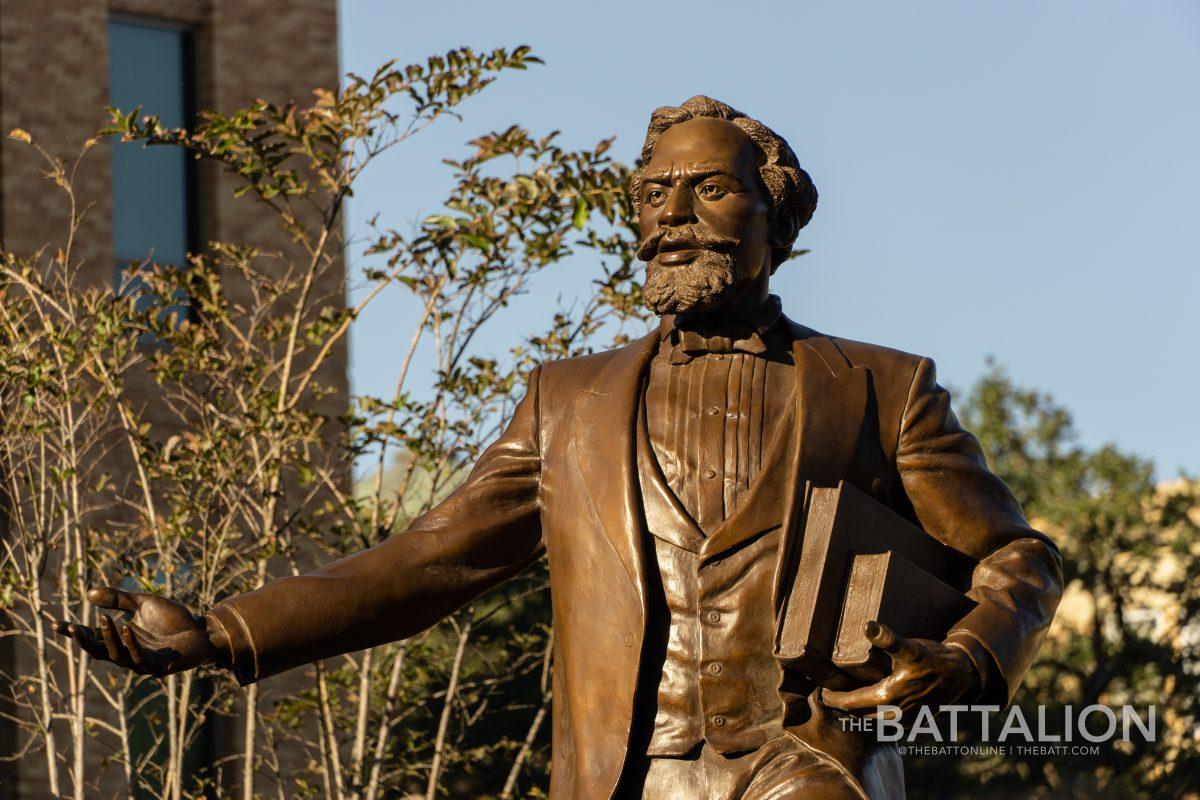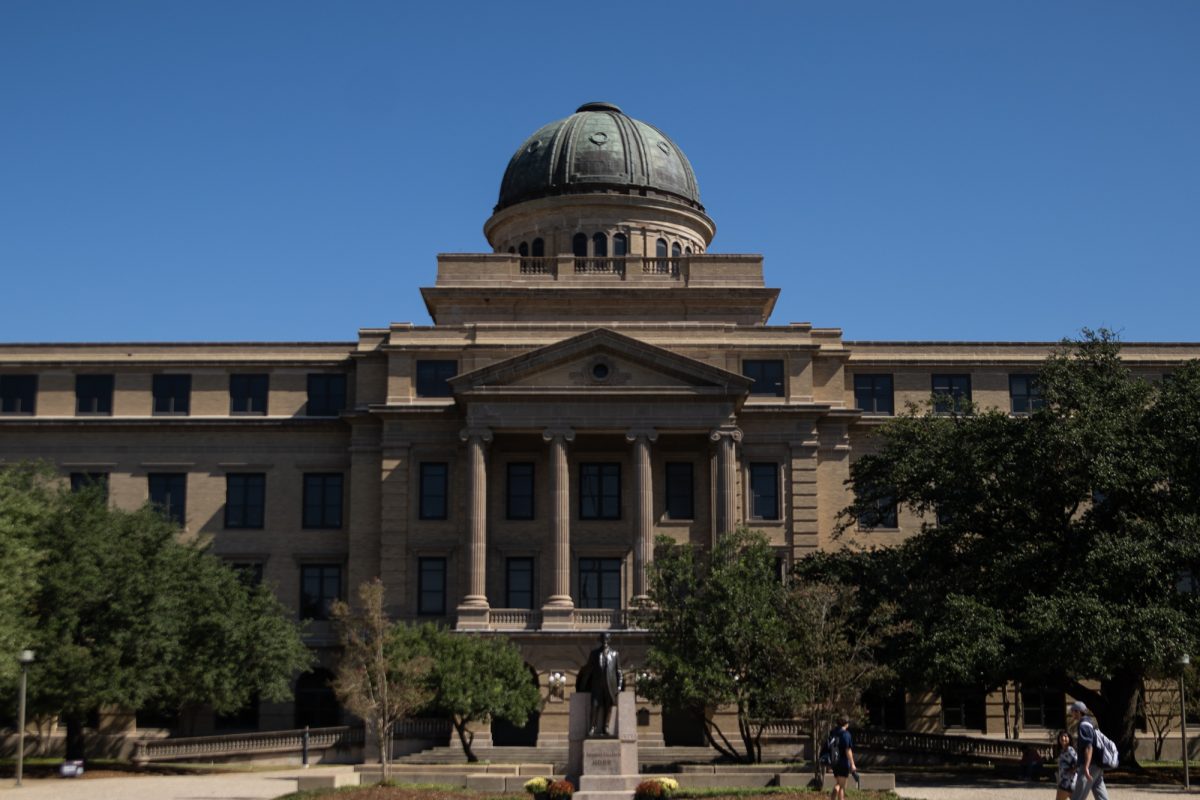After 27 years of campaigning, the Matthew Gaines Society celebrated the unveiling of the statue of former Texas Sen. Matthew Gaines on Friday, Nov. 19. Now that Gaines has seen his first game day in Aggieland, students had mixed reactions to the new face on campus.
Public health graduate student Bria Toms said after finding out about the event from her classmate, she was reminded of a similar memorial at her undergraduate university.
“My previous institution was San Jose State University in California,” Toms said. “We have a representation of what we consider Black culture, which is the statue of John Carlos and Tommie Smith — the first two African American athletes to raise awareness about injustices within athletics.”
With this additional perspective, Toms said the Gaines statue is a meaningful representation of the progress Texas A&M has made toward accepting and celebrating diversity.
“It means everything,” Toms said. “This is now a new era, [and it’s important to] understand that now we have something to identify with and something to look forward to when we come to campus.”
Biology and philosophy senior Archana Murthy said the statue seemed like a direct response to the ongoing controversy of the Lawrence Sullivan “Sully” Ross statue.
“I knew it was upcoming because I remembered the Sully incidents from last year and how the proposal was to put up a Matthew Gaines statue,” Murthy said. “I don’t think Matthew Gaines was really on the students’ radar before this whole statue thing happened. I’m not a Black student, so I can’t really speak on their behalf, but just as someone who is a student, it seems like we need Black representation on campus, so here is Matthew Gaines.”
Murthy also said the statue, while visually appealing, isn’t fully representative of the legacy of the Land Grant Act or A&M.
“It just speaks to the fact that we don’t have a Black person that’s been in the school’s direct history, and it doesn’t really talk about or acknowledge the horrific history of the Land Grant Act,” Murthy said. “A lot of Indigenous people had their lands taken away from them as a result of that. It feels like they’re choosing one minority representation over the other, so it’s interesting that the university chose this as the direction to go in order to promote a more diverse campus.”
Public health graduate student Jaccard Nelson said the statue dedication was particularly meaningful to him because of the leadership roles he held during his undergraduate career at A&M.
“During my undergraduate, I got to work with the former President of the Matthew Gaines Society [Erica Pauls],” Nelson said. “I was able to see them really build [the organization] from the ground up and be a small part of it, for fundraising and raising awareness for the statue.”
Nelson said it’s also important for students to realize the continued influence the Matthew Gaines Society hopes to have on campus.
“[The Matthew Gaines Society], even after the statue, wants to continue the legacy of education and not just have the statue,” Nelson said. “I think that’s the big thing, [to] continue that education of who Matthew Gaines is and what he stood for, to show what students really value.”
Murthy said she is still unsure how this statue will affect students and the larger A&M community.
“I think it’s a nice gesture,” Murthy said. “But I think we’re going to need more than gestures.”
Gaining perspective: Students react to Matthew Gaines statue
November 22, 2021
Photo by Photo by Melanie McBride
Students react to the Friday, Nov. 19 unveiling of the Matthew Gaines statue, an endeavor 27 years in the making.
0
Donate to The Battalion
$1915
$5000
Contributed
Our Goal
Your donation will support the student journalists of Texas A&M University - College Station. Your contribution will allow us to purchase equipment and cover our annual website hosting costs, in addition to paying freelance staffers for their work, travel costs for coverage and more!










